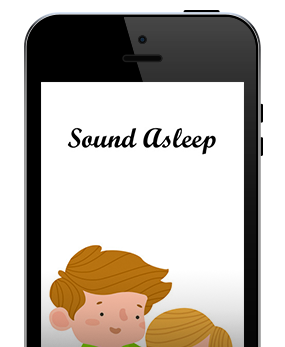Paediatric anaesthesia
Anaesthesia for your child
Having a child require surgery can be an anxious time for children and their parents/guardians and family. Many parents are understandably worried about their child having an anaesthetic.
Below is some basic information to help you understand more about general anaesthesia, and hopefully to make you feel more informed, better prepared and more comfortable as you support your child through their operation/procedure.
At any time please feel free to ask questions or discuss your concerns with Dr Hosking.
You may also want to visit the website below to learn how to speak with your children about anaesthesia:
epickids.org.au/how-to-talk-to-kids-about-their-operation
Please take a few minutes to watch the following video:
Your child’s Anaesthetist is a doctor who has specialised in anaesthesia, and then completed further specialist studies in anaesthesia for children. Components of this study include becoming an expert in resuscitation, care of the critically ill and pain management. Specialist paediatric Anaesthetists have a comprehensive understanding of medications used in anaesthesia, and how they react in children’s bodies.
Complications from anaesthesia are rare, but when they do occur, your Anaesthetist has expert knowledge and skills to manage these complications.
Your child’s well being is the responsibility of the Anaesthetist, who will stay with your child, and be responsible for their care during and immediately after their operation/procedure.
As far as possible beforehand, please contact Dr Hosking if your child has any serious medical conditions (such as diabetes, epilepsy, poorly controlled asthma, a heavy head cold or chest infection, or bleeding disorders).
Dr Hosking will call you the day prior to your child’s operation. You will meet her on the day of the surgery.
If you have any concerns or would like to contact your Anaesthetist prior to this, please contact her on 0476 774 347 or at admin@anaestheticroomsaust.com
One parent/carer will be allowed into the operating room as your child receives anaesthesia.
Parents/Carers are not permitted to remain in the operating room during surgery.
Most children under the age of ten initially receive anaesthesia by breathing a combination of anaesthetic gases, and oxygen through a mask. After they are asleep, they may or may not require an intravenous (IV) line, through which they receive fluid and additional anaesthetic medications.
Older children often initially receive anaesthesia through an IV, as adults do. Dr Hosking will discuss these options with you and your child.
Sometimes a medication will be given prior to the operation. This could be paracetamol to help with pain relief after the operation or occasionally it will be a relaxing medication if your child is anxious or distressed.
- Your child’s breathing will change; it could become heavier or louder.
- Your child’s body will become quite limp and relaxed. Before this happens you may notice some increased movement by your child. This is referred to as the “excitement phase.” It can be as subtle as hands tensing, or as active as both arms and legs moving vigorously. Your child will be unaware this is happening, and it will quickly pass to become relaxed with deeper sleep.
- Your child’s eyes may only partially close.
Please note that all of the above are completely normal. Dr Hosking will let you know when your child is asleep, and it is time for you to leave.
Once the anaesthetic mask is placed on your child’s face, the delivery of anaesthesia works best if continued without interruption until your child is asleep. It takes approximately 60 seconds to go to sleep breathing through the mask. If a child receives anaesthesia through an IV, it takes less than 30 seconds to go to sleep.
Once your child is asleep, a nurse will walk with you as you leave the Operating Room. Please understand you will need to leave quickly so the staff can focus on the care of your child.
The nurse will direct you to the waiting area.
It is a good idea to eat something while your child is in surgery, especially if you have also been fasting. You will need your energy to help your child during the recovery period.
Each child wakes up differently. Some wake up quickly; others are slower to rouse. Either way is fine. How quickly children wake up is also affected by the length of surgery, and the types of medications used.
Sometimes children wake up disoriented. They may cry and be quite restless. Your child’s eyes may be open; but he or she may not be fully awake. This type of restlessness is very common and does not always mean your child is experiencing pain. Most children do not remember this period.
If your child wakes up upset, they will most likely require several more minutes for the anaesthesia to wear off. As this happens, children usually begin to relax. Sometimes pain or sedative medications are given to help calm your child. The staff will be watching your child closely, assessing pain, and letting you know what is happening.
This depends on the type of surgery your child had, how much anaesthesia was required, how quickly he or she wakes up, and what medications are given in the recovery room. Patients having very short surgeries usually stay between 15 and 30 minutes. The average length of stay is between 30 and 60 minutes.
From the recovery room your child will go to the Post-operative Care Unit (POCU). The length of stay in the POCU is again determined by the type of surgery, and how your child is feeling.
Nursing staff will monitor your child’s alertness, ability to eat and drink, and any continuing need for pain medication. Length of stay in the POCU varies from 30 minutes to four (4) hours.
It is important to know that if your child does not have serious medical problems and is instrinsically well, the chance of a severe complication from anaesthesia is rare.
Below is a brief description of common and serious side effects.
Nausea and Vomiting
Nausea and vomiting are not common in young children. It becomes more common once children reach puberty. Medications will be given by your Anaesthetist to try to prevent vomiting however sometimes it may still occur.
If nausea and vomiting occur, rescue medications will be given by your Anaesthetist.
It is not uncommon to have a couple of blood stained vomits following dental surgery, tonsillectomy or nose operations. Medications will be given if this occurs, and it almost always stops occurring once your child eats and drinks.
Pain
Your Anaesthetist’s aim is to make your child as comfortable as possible following their procedure. All humans vary greatly with their pain relief requirements for surgery, so analgesic techniques often need to be adjusted. If your child wakes with pain in recovery, they will be given pain relief quickly.
Sore Throat
It is relatively common for your child to have a sore throat following surgery. Breathing whilst asleep under anaesthesia usually involves placing a breathing tube in your child’s throat once they are asleep. This may cause a small amount of throat discomfort and/or hoarseness of their voice which may last for a few days and is rarely persistent.
Skin Bruising
It is common for there to be bruises at the site of an intravenous drip or injection. Small children are usually asleep when attempts are made, but they can often be more difficult than adults and few attempts might be required.
Allergic Reactions
These are uncommon, but not zero. Each time your child is exposed to a new medication (including anaesthetics) there is a small chance that he/she may have a reaction. These reactions can vary from a mild rash to more serious breathing and blood pressure problems. If your child has one of these reactions their Anaesthetist is expertly trained to manage this situation immediately.
Breathing problems
Anaesthesia can cause breathing problems. The risk may be higher if your child has had a recent or currently has a cough or cold. These problems are more common in children with pre-existing asthma or sleep apnoea.
Another serious complication called aspiration can occur if stomach contents get into the lungs and damage them. This is more likely with emergency surgery or when inadequate fasting has occurred prior to your child’s operation.
Fasting is essential for safe anaesthesia.
1h
Clear fluids (e.g. water, apple juice, lemonade ice blocks) may be given to your child up to 1 hour before their operation.
6h
Your child needs to fast from all food and milk drinks (including formula) for 6 hours prior to their operation. This ensures that their stomach is empty and reduces the risk of aspirating contents of their stomach into their lungs.
If your child takes regular medications this should be discussed with Dr Hosking prior to the day of surgery.
Fasting for some children, and for babies less than 6 months old is different to that described above. You will be specifically be advised about fasting times before the day of procedure.
You have a key role. A confident and calm parent/guardian is so important for the purpose of having a calm child.
It is important to be honest with your child. Begin preparing your child for the operation/procedure as soon as a decision is made to proceed to surgery. Your child should be told that they will be in unfamiliar surrounds but will meet many friendly doctors and nurses. Tell them that they will be having an operation and that there may be some discomfort afterwards. Let them know that you may not be with them every minute but will always be waiting nearby.
Being present whilst your child is being anaesthetised is often helpful and it is common for one parent to be present as your child goes off to sleep. However this can be upsetting for some parents and it is not an expectation that you are present while your child goes off to sleep. Ultimately it is the decision of your child’s Anaesthetist as to whether you will be present or not, and all options will be discussed with you and your child prior to their anaesthetic.
Even for a short operation, there will be some waiting involved, so please bring any toys, books, electronic devices, comforters that can help pass time. Bring a change of clothes in case your child has an ‘accident’ falling asleep or waking up. Please take them to the toilet after you arrive at the hospital, prior to their anaesthetic.


